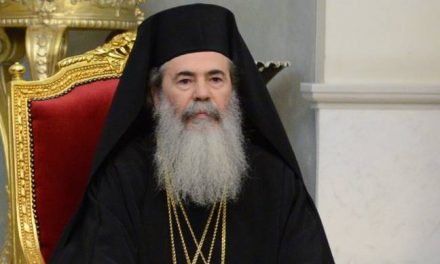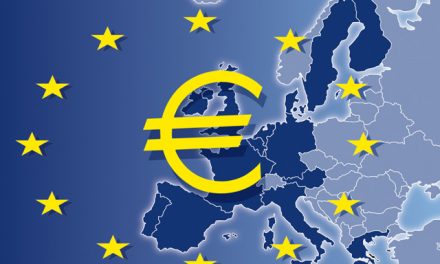By Wladimir van Wilgenburg, Ahval
Turkey is an unlikely regional partner for the United States as it bids to contain Iran, experts and observers told Ahval, as the latest policy shift under the Trump administration drops the Iran nuclear deal and adopts a more anti-Iranian policy.
Turkish officials and businessmen have been involved in sanction-breaking deals with Iran in the recent past. Turkey has also moved close to Iran as the two countries, along with Russia, co-operate in efforts to solve the ongoing Syrian conflict, holding peace talks in Astana that undermine Western-backed peace talks in Geneva.
On the other hand, U.S. Secretary of State Mike Pompeo, announcing his new Iran strategy on 21 May said, “We will track down Iranian operatives and their Hizballah proxies operating around the world and we will crush them. Iran will never again have carte blanche to dominate the Middle East.”
The Trump administration, known as one of the most anti-Iran administrations in recent decades, is now joined by Mike Pompeo, who has already threatened Iranian proxies in the region. His approach to Turkish affairs, remains unclear, though when it became clear Turkish President Recep Tayyip Erdoğan had overcame the coup attempt of July 2016, Pompeo took to twitter accusing Erdoğan of turning Turkey into an Islamist dictatorship.
“I don’t believe that Pompeo has any illusions about Erdogan,” Jonathan Schanzer, Vice President of research at the Foundation for Defense of Democracies, a Washington think tank, told Ahval.
“I have yet to see a statement from the new Secretary of State about Turkey and its foreign policy,” Schanzer continued. “My hope is that he takes a tougher stance, and makes demands of Ankara to return to the NATO fold. Without a clear message along these lines, we are almost certain to see Turkey drift further from Washington and the rest of the West.”
In a sign that this might be happening the U.S. Treasury, last Thursday, slapped sanctions on a Turkish citizen and three Turkish companies for supporting previously U.S.-sanctioned Iranian companies with links to terrorist-designated organisations.
“The new sanctions against procurement networks in Turkey are a sign that there are lingering illicit problems that still exist in Turkey from the Zarrab era. In the past the Treasury might have tried to handle this more quietly, to help keep the alliance on a positive track. The fact that sanctions were issued is, to me, a sign of growing U.S. frustration,” said Jonathan Schanzer, who previously worked in the U.S. Treasury as a terror finance analyst.
Reza Zarrab, an Iranian-Turkish gold trader, was the U.S. government’s star witness in last November’s New York trial of Turkish Halkbank executive Mehmet Hakan Atilla, accused of assisting Zarrab in a scheme that involved shipping gold bullion to Iran in return for sanctions-busting oil. Atilla was found guilty of five charges of enabling Zarrab’s scheme to work smoothly and was sentenced to 32 months’ imprisonment last week. Given the involvement of Turkish officials in sanction busting, this has led to further strains in the Turkish-U.S. relationship.
The fallout of the Zarrab & Atilla case is not yet over. Experts and observers alike expect U.S. authorities to hand a heavy punishment to Halkbank for its role to in helping Iran evade sanctions, mostly between 2011 and 2015.
Halkbank and the U.S. authorities are currently negotiating says Schanzer, adding, “The process of arriving at an agreed-upon settlement for the Halkbank sanctions violations is ongoing, with no sign that the two sides have reached an agreement. I don’t believe Erdogan can agree to any settlement until after the elections. In fact, this may have played a role in his decision to move them up.”
“The Turks claim they will accept an appropriate size fine, but do not define what that means. They also argue that a very big fine will be regarded as a ‘political fine.’ Under these circumstances, it seems likely that relations will be furthered strained as a result,” Steven Cook, a Turkey and Middle East expert at the Council on Foreign Relations told Ahval.
The U.S. House of Representatives passed a bill last Thursday punishing Turkey for its decision to buy the Russian S-400 air defence system, which would prevent Turkey from purchasing F-35 jets, placing Turkey under further sanctions during a period of economic turmoil and in the run up to elections in Turkey scheduled for 24 June.
Iran is becoming an ever larger problem between Ankara and Washington. Earlier in May President Erdoğan voiced support for the multilateral nuclear deal with Iran, despite the U.S.’s decision to withdraw from it.
“A U.S. strategy focused on containing Iran on the ground in Syria – using US forces rather than the YPG [People’s Protection Units] – could have won real support from Ankara,” Nicholas Danforth, Senior Policy Analyst at the Bipartisan Policy Center, told Ahval.
The pro-Turkish government news agency Daily Sabah in an editorial in February, argued that in order to contain Iran, Turkish assistance would be needed and called on Washington to drop support for the Kurdish YPG.
Iranian-backed militias briefly helped the Kurds in February, when Turkey attacked Afrin, and were bombed heavily by Turkey.
But at the same time there have been clashes and competition between the YPG-linked Syrian Democratic Forces (SDF) and Iranian-backed militias in Syria’s Deir ar Zour province.
At present, Washington is still backing the YPG-linked Syrian Democratic Forces (SDF) in its fight against ISIS, with experts arguing the SDF should receive continued U.S. backing to contain Iranian influence.
The U.S. Department of Defence considers U.S. military participation in stabilization efforts in eastern Syria necessary to prevent Iran and its proxies from filling a security vacuum that might otherwise emerge.
Earlier U.S. President Donald Trump said he wanted to withdraw from Syria, though it appears he has changed his mind.
“At its core, the idea that the U.S. needs Turkey to limit the influence of Iran is dependent on a particular reading of Turkey as a neo-Ottoman state under the guidance of President Erdoğan looking to rebuild its power throughout the greater Middle East,” Nicholas Heras, a researcher at the Center for a New American Security in Washington, told Ahval.
According to Heras, some see the Turkish state as a natural competitor and check on Iranian influence, particularly Arab nations in the Middle East. “In Syria, the idea would be that if a rapprochement with Turkey can be achieved by the United States, together Turkey and the United States would control one large NATO zone over the length of northern Syria that could box in Assad and Iran,” he added.
However, according to Ceng Sagnic, a researcher at Tel Aviv University’s Moshe Dayan Centre for Middle Eastern Studies, this is unrealistic in the current situation.
“Turkey’s disputes with the U.S. are too deep to allow Ankara to pair with Washington against Iran,” Sagnic, a researcher at Tel Aviv University’s Moshe Dayan Centre for Middle Eastern Studies, told Ahval.
“Especially the rapidly growing anti-Western sentiments fuelled by the government are one of the major obstacles for Ankara to take such a stance against Iran. This is combined with Turkey’s partnership with Russia and Iran in the Astana process,” he added.
Therefore, the situation doesn’t look rosy for Ankara, although the ruling Justice and Development Party (AKP)’s election manifesto vows to “overcome problems with the U.S.” Renewed sanctions on Iran would definitely affect Turkey.
“A strategy primarily focused on sanctions, however, could cause increased strain between the US and Turkey. Even when resisting Iran’s expanded geopolitical role in the region, Ankara has been eager to maintain mutually profitable trade relations with Iran,” analyst Danforth told Ahval.
“It is pretty clear that the United States is the outlier among its traditional European/NATO allies. Clearly the Turks believe the JCPOA [Nuclear deal] is the best way to arrest the development of Iran’s nuclear program. There has also been a long term Turkish effort (that predates AKP) to upgrade Turkey’s commercial relations with Iran,” Steven Cook said.
“To the extent that a Turkish company is doing business in Iran, it will be the target of secondary U.S. sanctions. That poses a problem, though the weakness of the Turkish economy is really a structural one that requires painful changes, which at present the government does not want to undertake,” he added.
“To the extent that energy prices rise as a result of the uncertainty over the future of the JCPOA and potential for conflict between the US and Iran increases, Turkey’s current account deficit increases. That is a problem,” he added.
According to Sagnic this will not necessarily have a direct impact either on Turkey or on Turkish assets worldwide, so long as the Turkish government refrains from repeating the same mistakes it made over the course of the past decade.
But Sagnic expects that Teheran will likely seek to bolster economic relations with Turkey (especially the purchase of gold) to circumvent liquidity problems in the event of renewed sanctions.
“In other words, the Iranian government may attempt to revive the old channels that it once used to bypass international sanctions, one of which was Turkey, some Turkish banks and Turkish businessmen allegedly backed by the government itself,” he said.
“The Turkish government should be more cautious as its economic interactions with Iran will be reviewed in detail should sanctions be renewed,” he added.
It is also unlikely that Turkey can help the U.S. contain Iran amid ongoing disputes between Turkey with the U.S. over Syria, the Gülen case and U.S. support for Kurdish groups.
“Turkey cannot be anticipated to partner with the US government to contain Iran, nor does Turkey seem to have such intentions,” said Sagnic.
Therefore, he suggested that it would be wiser for Turkey to stay away from business transactions with Iran and maintain neutrality in the US-Iran dispute. “(…) instead of (playing) a dangerous game of benefiting from Iran’s potentially isolated position.”
Turkey will continue to trade with Iran
Turkey will continue to trade with Iran while complying with UN resolutions on nuclear activities after the U.S. government’s decision to withdraw fro Iran nuclear deal, Turkey’s Economy Minister Nihat Zeybekçi said on Friday, Anadolu Agency reported .
“It is an opportunity for Turkey. We will continue to have trade with Iran while complying with the UN resolutions on nuclear activities,” Zeybekçi said when answering questions at the Anadolu Agency’s Editors’ Desk in the capital Ankara.
“We believe in this: The stronger Iran gets in this region, the stronger Turkey becomes as well, and the stronger Turkey becomes, the stronger Iran gets as well,” Zeybekçi added.
The 2015 Iran nuclear deal placed restrictions on Iran’s nuclear program in exchange for billions of dollars in relief from international sanctions. Despite U.S. president Turmp’s decision to withdraw from the agreement, the leaders of EU countries announced that they would continue to support the deal.


















